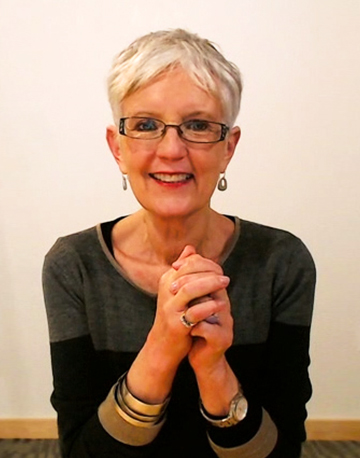How to Work with Patients Whose Trauma Triggers Problems in Their Current Relationships
 |
with Stephen Porges, PhD;
|
 |
with Stephen Porges, PhD; Terry Real, MSW, LICSW;
Janina Fisher, PhD Richard; Schwartz, PhD; Pat Ogden, PhD; Martha Sweezy, PhD, LICSW; Bessel van der Kolk, MD; Ruth Lanius, MD, PhD; Deb Dana, LCSW; Thema Bryant-Davis, PhD; Ruth Buczynski, PhD
Sign up for the Gold Package

This is a learning community for practitioners. We can’t wait to hear what you’re going to use with your clients
But please do NOT:
- seek advice for personal problems
- ask for referrals
- post links or advertise a product
- post about technical problems
I most appreciated when Terry said that there’s no such thing as overreacting, that we’re just not always reacting to something in the present tense. My clients often understand this but their families don’t and it’s a great way to describe it. Thanks.
I’m grateful for the collaborative wisdom and knowledge of these videos. Working together and sharing like this is what is needed for our field to flourish as we enrich each other. Thank you ever so much!
From this section, I am inspired to find a way to work with people in their relationships differently. Often, when I work with people in relationships – couples, parent-child, etc – I see each individual separately. I would like to find a way to have more psycho-education with multiple people present to work with family by any definition and other groups or pairs of people.
Thank you so much for this fantastic series that you have professionally compiled. The presenters were amazing!
Not only will it be very helpful for me as a therapist but also personally and in my own relationships
There is in some families a Legacy of Abuse Trauma, especially sexual abuse trauma that is handed down thru generations. Serious Dissociation and DID become the normal way of life. Breaking the chains and patterns enough to enable a survivor to choose healthier relationships is so important in not repeating these horrors with a new generation. Having these tools is vital along with therapists trained and experienced in using these methods to help those living with this Legacy to have the safety and ability to build new patterns. There is hope. I would love to see this material/the material in the Gold Package to be made available to Mental Health Clinics that serve some of the most underserved populations with these issues. We have been wandering around in the dark for too long, with therapists who do not have this knowledge. Or in fact in mental health clinics that don’t even therapy as an option, or accessible treatment for Trauma due to poverty and homelessness. Many therapists who do work with these populations, are not making much financially to afford some of this kind of training and materials. And yet they are expected to treat those with these severe problems. Many try to self educate as they can thru access to books written by your speakers. How much more could they benefit from your Gold Package. The free seminar may not always be enough, or at times therapists can access, and repeated enough for them to watch. So I ask in their behalf, if you have not done so already, please consider donating your Gold Package to these clinics. Even if it is only 1 package per Clinic so that it can be shared among all the practitioners in that Clinic. All should be able to benefit from this information. Thank you
I echo some of your ideas as this session reveals how traumatized victims of child sexual abuse, both male and female victims, often grow up to perpetuate cycles of repeated sexual abuse, in a dissociated state. Ruth Lanius, Janina Fisher, and Thema Bryant-Davis suggest this as attachment disorder deficits. The epidemic of emotional trauma in the U.S. would account for the explosion of severe sexual dysfunction. Males become sexual predators and females seek abortions at ever-younger ages, in epidemic proportions. What is needed is to retrain the brain as taught by Stephen Porges in his Polyvagal theory.
NICABM offers plenty of free resources constantly, every few weeks there is a new free course being offered. They are extremely generous. There are plenty of FREE resources available on their website. It is possible to recommend the free courses to colleagues, who are non-professionals, the next time NICABM offers a free course. Their other free courses build on this work with the same high-level presenters. They often have several course offers going on at the same time. Also, look up the presenters on their individual websites where many of them advise where free resources are available. And send for the books by the authors. NICABM goes out of their way to offer free education of the highest level that is helping many clinicians as well as volunteer counselors in charitable organizations.
Amazing series! Thank you for all you do at NICABM.
I have learned useful insights and approaches I plan to use for my patients
Enjoyed what parts of the workshop did not stop Wanted midstream. Wanted to sign up and sent to a few interested people who could benefit. It was bad throughout the other days. Not sure why but just makes learning frustrating when this was why I decided to participate as the systems failure has caused some major trauma for me this entire year, especially when trying to do work for clients.iio Let me know when this is no longer a challenge as I so enjoy learning especially when I works daily with trauma victims. Hope this improves but fear it is only the beginning. If you get this fixed, please let me know. My best to all the trainers endeavors and the institute. You have helped me for at least a decade and my hope springs eternal and three clients could have enjoyed the presentations, both professionally and personally.
They repeat these often. Just go to their website fir more info.
Thank you very much for sharing this masterclass. I have a much deeper and clearer understanding of the complexities of working with clients who have experienced traumatic events.
Thank you Ruth for 5 days of an excellent learning experience. I appreciated the whole programme. You and your wonderful colleagues are so inspiring. Warm wishes, Pauline
I really appreciated hearing from so many various therapists with different approaches but also so synchronized with each other. Ruth is a good commentator and she helped summary each section. I learned some very useful approaches and ideas from everyone. Thanks for creating this.
Hi Ruth,
Today’s session was outstanding and so packed.
I registered for the Gold Package and did not receive a confirmation.
So, I registered a second time for the Gold Package. No confirmation.
Would you please check to see if my initial payment went through? I so value this program. It’s the most impactful information I’ve received from NIBACM – I want to take advantage of the Gold Package before the price goes up. Thanks, Christine Kahane, NBC-HWC, MCWC.
Hi Christine! I am sorry to hear that you experienced this issue. Please email us at respond@nicabm.com so we can help resolve this!
Thank you.Brilliant learning
This is wonderful!
I’m neither a practitioner nor a therapist, and came for personal growth. I feel healed in so many ways from being here. Thank you so so much for sharing.
This is an outstanding comprehensive program, thank you Dr. Ruth, and your entire list of accomplished participants. I am not a practitioner, however I find this information abundantly helpful with my own healing journey. With deep appreciation.
thank you very much, really appreciate the whole programme and especially the relationship discourse. inspiring and illuminating.
Thank you for making these sessions available. It is very useful for me as a peer mentor and as psychoéducation.
I only managed to view the last few minutes of the final seeion; i missed the beginning sessions and would like to know when and how I can revisit them from the beginning?
You can buy the Gold package before the price goes up – it’s good value! You’ll be able to watch it at your leisure and keep it too.
Is it possible for us to see the comment board for other days?
Excellent program, thank you very much for this series! Much Love, Kim
Thank you for sharing your wisdom with us! changing the world🙏
Thank you so much for these in depth looks into aspects of trauma. They have helped me understand a lot about myself and my depression, rages and difficulties. I appreciate everyone’s input from years of experience.
Thank you heartily for the shared knowledge and experience.
So much work from you all, and impressive knitting together of all the contributions. Thank you all, and especially Ruth B.,
I am so grateful to you for producing these, so incredibly helpful for someone like me (a lay person), who istremendously supportive in spirit of the work you do to bring these sessions to people around the world who are financially compromised.
I am so honestly grateful for your work! thank you, thank you, thank you! I couldn’t enjoy it more!
May you be highly blessed for this, for all your help and time, and efforts, and work.
Thank u so very Much.
Many thanks yet again. Very impressed with all your work and I feel privileged to be part of this global community.
Thank you amuck for helping us understand ourselves and our families and couples, and for offering strategies that for sure will be enlightening our intention for change….
Thank you for all you do. All of these tools will be put to great use for my clients who have experienced trauma and felt safe enough with me to be seen and to go to work on healing and integrating these moments of trauma into their pasts and move forward with empowerment.
This will really help with advocating for universal TIC and helping clinicians to better support patients, including in the general hospital to reduce further traumas like those my colleagues have caused me when I’ve been a patient and them uninformed, hence I’m no longer in clinical practice but in healthcare advocacy. Also was very validating and will help with my interactions with my mother who is very slowly learning that she was in an abusive relationship with my father, but won’t see a therapist so I’m having to guide her slowly through bits of my journey witnessing what happened to her and with the support of my trauma therapist.
Thank you for sharing these invaluable insights
🌷🕊️💞🕊️🌷
Thank you for these 5 masterclasses. I take away a better understanding of the attach/cry reaction. I wish there were supervised SE sessions we could watch online. I feel that most of the work as somatic practitioners is to read body language, be attuned to our own nervous systems and our clients’, and that learning is first of all personal and intuitive. That being said, I would love to be able to see therapy sessions from Pat Ogden especially, and learn from her way of managing sessions.
Thank you!
could use more clarity on what Kelly Wilson explained at the end. Maybe a future session could expand. Thanks.
Thank you for an enlightening and informative series. As long as I’ve been working in the field of mental health, forty years, there is always something new to learn in the application of nurture-based psychotherapy. And, what NICABM offers is an important aspect of such. What I don’t see is more insight about nature-based applications; with the exception of physiology. Freud and colleagues (circa 1914) identified the need for a first causality and Hans Selye coined the term distress as it related to the disease/RNA factor of what we now call PTSD or trauma related conditions. May I suggest reading the upcoming ISTSS C-PTSD SIG newsletter for some insight into the concept of nature-based assessments. I look forward to seeing what NICABM might develop. Warm regards, Ed Sibley
Thanks for this excellent recommendation for deeper research and future study. Yes, collective consciousness of humanity is evolving in this field of study. If the polyvagal theory can be applied as a metaphor for emerging non-dual consciousness in which the pre-frontal cortex continues to evolve in the human species, mediating the primal responses of earlier brain functions, we continue to build upon a body of knowledge. We build on the pioneering research and applications of the experts represented by the NICABM generous presenters as we absorb and integrate their teachings. As a culture moving towards wholeness, the corresponding brain and nerve centers help us evolve to a Super Consciouness as we all journey together.
I can’t afford the gold right now but I learned so much today.
I have survived emotional, physical, and sexual abuse from the age of 3 or 4. Now 66. Want so badly to have a sweet relationship with a man again.
“You don’t keep choosing the wrong men, it’s your body doing the choosing.”
My therapist has been wonderful and working with me on several areas you touched on today. I think I’m starting to get it. Thank you!! Viki
My history is similar to yours. There were there were many nuggets today for sure that will help me on my healing journey. I was thinking of stretching and getting the gold package, but then realized I probably should not be on a deeper journey alone. I have to stay in the my healthy adult part when I’m learning this material to keep from triggering one of the others who would love to kick up a storm!
I love the validation & non- judgmental approach.
“ It’s my body that chooses “
I have great interest in the polyvagal approach & would love to hear more from Bessel. He really resonates with me.
Thank you for all you do!